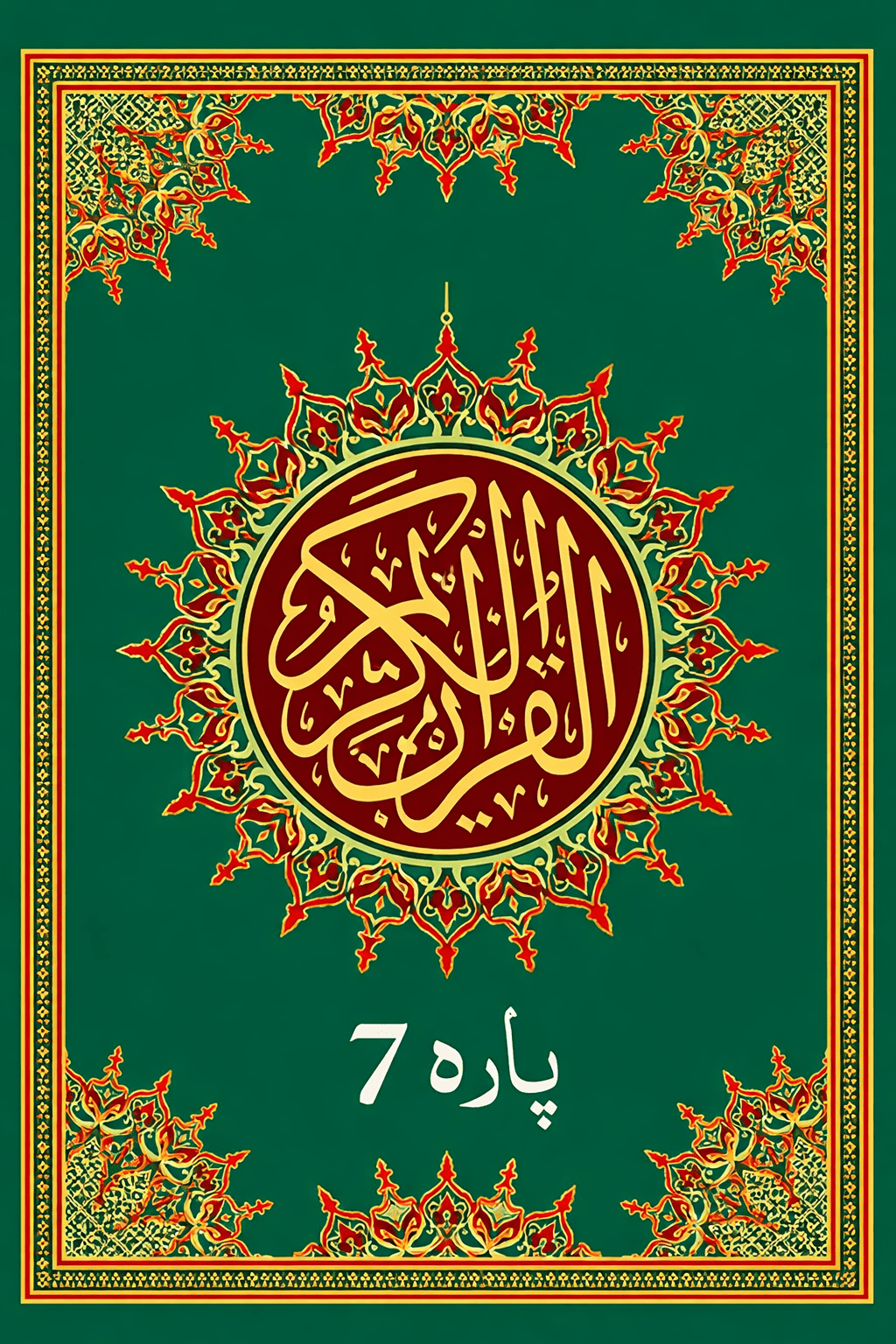
Discover the significance of Sajdah in Quran, including how many Sajdahs are in the Quran, how to perform them, and the dua for Sajdah. Learn more with our detailed guide.
Introduction:
The act of Sajdah (prostration) holds great significance in Islam, representing the ultimate submission and humility before Allah. Within the Quran, there are specific verses that prompt Muslims to perform Sajdah, known as “Sajdah Tilawat.” Understanding the concept of Sajdah in the Quran, including how many Sajdahs are in the Quran and how to perform them, is crucial for every Muslim. This comprehensive guide will explore the various aspects of Sajdah in the Quran, answering frequently asked questions and providing a detailed list of all the Sajdahs in the Quran.
What is Sajdah in the Quran?
Sajdah in the Quran refers to the prostration Muslims perform upon reciting or hearing certain verses from the Quran that command them to bow down in humility before Allah. These verses are spread throughout the Quran and are known as Ayat al-Sajdah (verses of prostration). Performing Sajdah upon reciting these verses is a form of worship and an expression of submission to Allah.
How Many Sajdahs are in the Quran?
There is some debate among scholars regarding the exact number of Sajdahs in the Quran. The majority opinion holds that there are 14 Sajdahs, while some scholars believe there are 15. This discrepancy arises due to differences in the interpretation of certain verses. Below, we will explore the list of all Sajdahs in the Quran and discuss this topic further.

List of 14 Sajdahs in the Quran
- Surah Al-A’raf (7:206)
- Surah Ar-Ra’d (13:15)
- Surah An-Nahl (16:50)
- Surah Al-Isra (17:109)
- Surah Maryam (19:58)
- Surah Al-Hajj (22:18)
- Surah Al-Hajj (22:77)
- Surah Al-Furqan (25:60)
- Surah An-Naml (27:26)
- Surah As-Sajdah (32:15)
- Surah Sad (38:24)
- Surah Fussilat (41:38)
- Surah An-Najm (53:62)
- Surah Inshiqaq (84:21)
Some scholars also include Surah Al-Alaq (96:19) as a Sajdah, making the total 15. However, the above list of 14 is widely accepted.
How to Perform Sajdah in the Quran
When reciting or hearing a verse of Sajdah, it is Sunnah to immediately perform Sajdah. Here’s how you can perform Sajdah in the Quran:
- Intention (Niyyah): Make the intention in your heart to perform Sajdah for the sake of Allah.
- Takbeer: Say “Allahu Akbar” (Allah is the Greatest) and go into prostration.
- Prostration (Sajdah): Place your forehead, nose, both palms, knees, and toes on the ground. Ensure that your elbows are lifted off the ground.
- Dua for Sajdah in the Quran: During the Sajdah, recite the dua, “Subhana Rabbiyal A’la” (Glory is to my Lord, the Most High) three times or more.
- Rising from Sajdah: Say “Allahu Akbar” again and rise from the Sajdah.
Dua for Sajdah in the Quran
While in Sajdah, it is recommended to recite the dua, “Subhana Rabbiyal A’la” (Glory is to my Lord, the Most High). This supplication glorifies Allah and acknowledges His greatness.
Sajdah in the Quran: Para Wise
Understanding the placement of Sajdah verses in the Quran by Para (sections) can help with easy navigation. Here’s a brief overview of where these Sajdahs are located para-wise:
- Para 9: Surah Al-A’raf (7:206)
- Para 13: Surah Ar-Ra’d (13:15)
- Para 14: Surah An-Nahl (16:50)
- Para 15: Surah Al-Isra (17:109)
- Para 16: Surah Maryam (19:58)
- Para 17: Surah Al-Hajj (22:18)
- Para 17: Surah Al-Hajj (22:77)
- Para 18: Surah Al-Furqan (25:60)
- Para 19: Surah An-Naml (27:26)
- Para 21: Surah As-Sajdah (32:15)
- Para 23: Surah Sad (38:24)
- Para 24: Surah Fussilat (41:38)
- Para 27: Surah An-Najm (53:62)
- Para 30: Surah Inshiqaq (84:21)
First Sajdah in the Quran
The first Sajdah in the Quran is found in Surah Al-A’raf, verse 206. This verse marks the beginning of the Sajdah Tilawat in the Quran and holds a special place in Islamic worship.
2nd Sajdah in the Quran: Which Para?
The second Sajdah in the Quran is located in Surah Ar-Ra’d, verse 15, which falls in Para 13. This verse, like all Sajdah verses, emphasizes the importance of submission to Allah.
How to Sajdah in Quran
Performing Sajdah in the Quran is a simple yet profound act of worship. Whenever you recite or hear a verse of Sajdah, follow the steps mentioned earlier to perform the Sajdah Tilawat correctly.
Sajda in Quran All Ayat in Arabic & English Translation
1. Surah Al-A’raf (7:206)
Arabic:
إِنَّ الَّذِينَ عِندَ رَبِّكَ لَا يَسْتَكْبِرُونَ عَنْ عِبَادَتِهِ وَيُسَبِّحُونَهُ وَلَهُ يَسْجُدُونَ
English Translation:
“Indeed, those who are near your Lord are not prevented by arrogance from His worship, and they exalt Him and to Him they prostrate.”
2. Surah Ar-Ra’d (13:15)
Arabic:
وَلِلَّهِ يَسْجُدُ مَنْ فِي السَّمَاوَاتِ وَالْأَرْضِ طَوْعًا وَكَرْهًا وَظِلَالُهُم بِالْغُدُوِّ وَالْآصَالِ
English Translation:
“And to Allah prostrates whoever is within the heavens and the earth, willingly or by compulsion, and their shadows as well in the mornings and the afternoons.”
3. Surah An-Nahl (16:50)
Arabic:
يَخَافُونَ رَبَّهُم مِّن فَوْقِهِمْ وَيَفْعَلُونَ مَا يُؤْمَرُونَ
English Translation:
“They fear their Lord above them, and they do what they are commanded.”
4. Surah Al-Isra (17:109)
Arabic:
وَيَخِرُّونَ لِلْأَذْقَانِ يَبْكُونَ وَيَزِيدُهُمْ خُشُوعًا
English Translation:
“And they fall upon their faces weeping, and it increases them in humble submission.”
5. Surah Maryam (19:58)
Arabic:
أُولَٰئِكَ الَّذِينَ أَنْعَمَ اللَّهُ عَلَيْهِم مِّنَ النَّبِيِّينَ مِن ذُرِّيَّةِ آدَمَ وَمِمَّنْ حَمَلْنَا مَعَ نُوحٍ وَمِن ذُرِّيَّةِ إِبْرَاهِيمَ وَإِسْرَائِيلَ وَمِمَّنْ هَدَيْنَا وَاجْتَبَيْنَا ۚ إِذَا تُتْلَىٰ عَلَيْهِمْ آيَاتُ الرَّحْمَٰنِ خَرُّوا۟ سُجَّدًا وَبُكِيًّا
English Translation:
“Those were the ones upon whom Allah bestowed favor from among the prophets of the descendants of Adam and of those We carried [in the ship] with Noah, and of the descendants of Abraham and Israel, and of those whom We guided and chose. When the verses of the Most Merciful were recited to them, they fell in prostration and weeping.”
6. Surah Al-Hajj (22:18)
Arabic:
أَلَمْ تَرَ أَنَّ اللَّهَ يَسْجُدُ لَهُ مَن فِي السَّمَاوَاتِ وَمَن فِي الْأَرْضِ وَالشَّمْسُ وَالْقَمَرُ وَالنُّجُومُ وَالْجِبَالُ وَالشَّجَرُ وَالدَّوَابُّ وَكَثِيرٌ مِّنَ النَّاسِ ۖ وَكَثِيرٌ حَقَّ عَلَيْهِ الْعَذَابُ ۗ وَمَن يُهِنِ اللَّهُ فَمَا لَهُ مِن مُّكْرِمٍ ۚ إِنَّ اللَّهَ يَفْعَلُ مَا يَشَاءُ
English Translation:
“Do you not see that to Allah prostrates whoever is in the heavens and whoever is on the earth – the sun, the moon, the stars, the mountains, the trees, the moving creatures, and many of the people? But upon many the punishment has been justified. And he whom Allah humiliates – for him there is no bestower of honor. Indeed, Allah does what He wills.”
7. Surah Al-Hajj (22:77)
Arabic:
يَا أَيُّهَا الَّذِينَ آمَنُوا ارْكَعُوا وَاسْجُدُوا وَاعْبُدُوا رَبَّكُمْ وَافْعَلُوا الْخَيْرَ لَعَلَّكُمْ تُفْلِحُونَ
English Translation:
“O you who have believed, bow and prostrate and worship your Lord and do good – that you may succeed.”
8. Surah Al-Furqan (25:60)
Arabic:
وَإِذَا قِيلَ لَهُمُ اسْجُدُوا لِلرَّحْمَٰنِ قَالُوا وَمَا الرَّحْمَٰنُ أَنَسْجُدُ لِمَا تَأْمُرُنَا وَزَادَهُمْ نُفُورًا
English Translation:
“And when it is said to them, ‘Prostrate to the Most Merciful,’ they say, ‘And what is the Most Merciful? Should we prostrate to that which you order us?’ And it increases them in aversion.”
9. Surah An-Naml (27:26)
Arabic:
اللَّهُ لَا إِلَٰهَ إِلَّا هُوَ رَبُّ الْعَرْشِ الْعَظِيمِ
English Translation:
“Allah – there is no deity except Him, Lord of the Great Throne.”
10. Surah As-Sajdah (32:15)
Arabic:
إِنَّمَا يُؤْمِنُ بِآيَاتِنَا الَّذِينَ إِذَا ذُكِّرُوا بِهَا خَرُّوا۟ سُجَّدًا وَسَبَّحُوا۟ بِحَمْدِ رَبِّهِمْ وَهُمْ لَا يَسْتَكْبِرُونَ
English Translation:
“Only those believe in Our verses who, when they are reminded by them, fall down in prostration and exalt [Allah] with praise of their Lord, and they are not arrogant.”
11. Surah Sad (38:24)
Arabic:
قَالَ لَقَدْ ظَلَمَكَ بِسُؤَالِ نَعْجَتِكَ إِلَىٰ نِعَاجِهِ ۖ وَإِنَّ كَثِيرًا مِّنَ الْخُلَطَآءِ لَيَبْغِى۟ بَعْضُهُمْ عَلَىٰ بَعْضٍ إِلَّا الَّذِينَ ءَامَنُوا۟ وَعَمِلُوا۟ الصَّٰلِحَٰتِ وَقَلِيلٌ مَّاهُمْ ۗ وَظَنَّ دَاوُۥدُ أَنَّمَا فَتَنَّٰهُ فَاسْتَغْفَرَ رَبَّهُ وَخَرَّ رَاكِعًا وَأَنَابَ
English Translation:
“[David] said, ‘He has certainly wronged you in demanding your ewe to add to his ewes. And indeed, many associates oppress one another, except for those who believe and do righteous deeds – and few are they.’ And David became certain that We had tried him, and he asked forgiveness of his Lord and fell down bowing (in prostration) and turned in repentance [to Allah].”
12. Surah Fussilat (41:38)
Arabic:
فَإِنِ اسْتَكْبَرُوا فَالَّذِينَ عِندَ رَبِّكَ يُسَبِّحُونَ لَهُ بِالَّيْلِ وَالنَّهَارِ وَهُمْ لَا يَسْأَمُونَ
English Translation:
“But if they are arrogant – then those who are near your Lord exalt Him by night and by day, and they do not become weary.”
13. Surah An-Najm (53:62)
Arabic:
فَاسْجُدُوا لِلَّهِ وَاعْبُدُوا
English Translation:
“So prostrate to Allah and worship [Him].”
14. Surah Inshiqaq (84:21)
Arabic:
وَإِذَا قُرِئَ عَلَيْهِمُ الْقُرْآنُ لَا يَسْجُدُونَ
English Translation:
“And when the Qur’an is recited to them, they do not prostrate [to Allah].”
Sajda in Quran Surah verse Arabic text & English Translation
| Surah | Verse | Arabic Text | English Translation |
|---|---|---|---|
| Al-A’raf | 7:206 | إِنَّ الَّذِينَ عِندَ رَبِّكَ لَا يَسْتَكْبِرُونَ عَنْ عِبَادَتِهِ وَيُسَبِّحُونَهُ وَلَهُ يَسْجُدُونَ | “Indeed, those who are near your Lord are not prevented by arrogance from His worship, and they exalt Him and to Him they prostrate.” |
| Ar-Ra’d | 13:15 | وَلِلَّهِ يَسْجُدُ مَنْ فِي السَّمَاوَاتِ وَالْأَرْضِ طَوْعًا وَكَرْهًا وَظِلَالُهُم بِالْغُدُوِّ وَالْآصَالِ | “And to Allah prostrates whoever is within the heavens and the earth, willingly or by compulsion, and their shadows as well in the mornings and the afternoons.” |
| An-Nahl | 16:50 | يَخَافُونَ رَبَّهُم مِّن فَوْقِهِمْ وَيَفْعَلُونَ مَا يُؤْمَرُونَ | “They fear their Lord above them, and they do what they are commanded.” |
| Al-Isra | 17:109 | وَيَخِرُّونَ لِلْأَذْقَانِ يَبْكُونَ وَيَزِيدُهُمْ خُشُوعًا | “And they fall upon their faces weeping, and it increases them in humble submission.” |
| Maryam | 19:58 | إِذَا تُتْلَىٰ عَلَيْهِمْ آيَاتُ الرَّحْمَٰنِ خَرُّوا۟ سُجَّدًا وَبُكِيًّا | “When the verses of the Most Merciful were recited to them, they fell in prostration and weeping.” |
| Al-Hajj | 22:18 | أَلَمْ تَرَ أَنَّ اللَّهَ يَسْجُدُ لَهُ مَن فِي السَّمَاوَاتِ وَمَن فِي الْأَرْضِ وَالشَّمْسُ وَالْقَمَرُ وَالنُّجُومُ وَالْجِبَالُ وَالشَّجَرُ وَالدَّوَابُّ وَكَثِيرٌ مِّنَ النَّاسِ | “Do you not see that to Allah prostrates whoever is in the heavens and whoever is on the earth – the sun, the moon, the stars, the mountains, the trees, the moving creatures, and many of the people?” |
| Al-Hajj | 22:77 | يَا أَيُّهَا الَّذِينَ آمَنُوا ارْكَعُوا وَاسْجُدُوا وَاعْبُدُوا رَبَّكُمْ وَافْعَلُوا الْخَيْرَ لَعَلَّكُمْ تُفْلِحُونَ | “O you who have believed, bow and prostrate and worship your Lord and do good – that you may succeed.” |
| Al-Furqan | 25:60 | وَإِذَا قِيلَ لَهُمُ اسْجُدُوا لِلرَّحْمَٰنِ قَالُوا وَمَا الرَّحْمَٰنُ أَنَسْجُدُ لِمَا تَأْمُرُنَا وَزَادَهُمْ نُفُورًا | “And when it is said to them, ‘Prostrate to the Most Merciful,’ they say, ‘And what is the Most Merciful? Should we prostrate to that which you order us?'” |
| An-Naml | 27:26 | اللَّهُ لَا إِلَٰهَ إِلَّا هُوَ رَبُّ الْعَرْشِ الْعَظِيمِ | “Allah – there is no deity except Him, Lord of the Great Throne.” |
| As-Sajdah | 32:15 | إِنَّمَا يُؤْمِنُ بِآيَاتِنَا الَّذِينَ إِذَا ذُكِّرُوا بِهَا خَرُّوا۟ سُجَّدًا وَسَبَّحُوا۟ بِحَمْدِ رَبِّهِمْ وَهُمْ لَا يَسْتَكْبِرُونَ | “Only those believe in Our verses who, when they are reminded by them, fall down in prostration and exalt [Allah] with praise of their Lord, and they are not arrogant.” |
| Sad | 38:24 | وَظَنَّ دَاوُۥدُ أَنَّمَا فَتَنَّٰهُ فَاسْتَغْفَرَ رَبَّهُ وَخَرَّ رَاكِعًا وَأَنَابَ | “And David became certain that We had tried him, and he asked forgiveness of his Lord and fell down bowing (in prostration) and turned in repentance [to Allah].” |
| Fussilat | 41:38 | فَإِنِ اسْتَكْبَرُوا فَالَّذِينَ عِندَ رَبِّكَ يُسَبِّحُونَ لَهُ بِالَّيْلِ وَالنَّهَارِ وَهُمْ لَا يَسْأَمُونَ | “But if they are arrogant – then those who are near your Lord exalt Him by night and by day, and they do not become weary.” |
| An-Najm | 53:62 | فَاسْجُدُوا لِلَّهِ وَاعْبُدُوا | “So prostrate to Allah and worship [Him].” |
| Inshiqaq | 84:21 | وَإِذَا قُرِئَ عَلَيْهِمُ الْقُرْآنُ لَا يَسْجُدُونَ | “And when the Qur’an is recited to them, they do not prostrate [to Allah].” |
Conclusion:
The act of Sajdah in the Quran is a powerful reminder of our submission to Allah. Understanding how many Sajdahs are in the Quran, where they are located, and how to perform them is essential for every Muslim. Whether you are reciting the Quran during prayer or listening to it, being mindful of these verses and performing the Sajdah Tilawat is a beautiful expression of faith and devotion.
This guide has provided an in-depth look at all aspects of Sajdah in the Quran, from the list of Sajdahs to the dua for Sajdah. May Allah grant us the strength to fulfill this important act of worship with sincerity and devotion.
FAQs
Q1: How many Sajdahs are in the Quran? A: There are 14 widely recognized Sajdahs in the Quran, though some scholars count 15.
Q2: How do you perform Sajdah in the Quran? A: You perform Sajdah by making the intention, saying “Allahu Akbar,” and then going into prostration. During Sajdah, recite “Subhana Rabbiyal A’la” and then rise with “Allahu Akbar.”
Q3: What is the dua for Sajdah in the Quran? A: The dua for Sajdah in the Quran is “Subhana Rabbiyal A’la,” which means “Glory is to my Lord, the Most High.”
Q4: Where is the first Sajdah in the Quran? A: The first Sajdah in the Quran is found in Surah Al-A’raf, verse 206.
Q5: Is there a difference in opinion on the number of Sajdahs in the Quran? A: Yes, while most scholars agree on 14 Sajdahs, some consider there to be 15.
 Colors
Colors 
 Support
Support 






